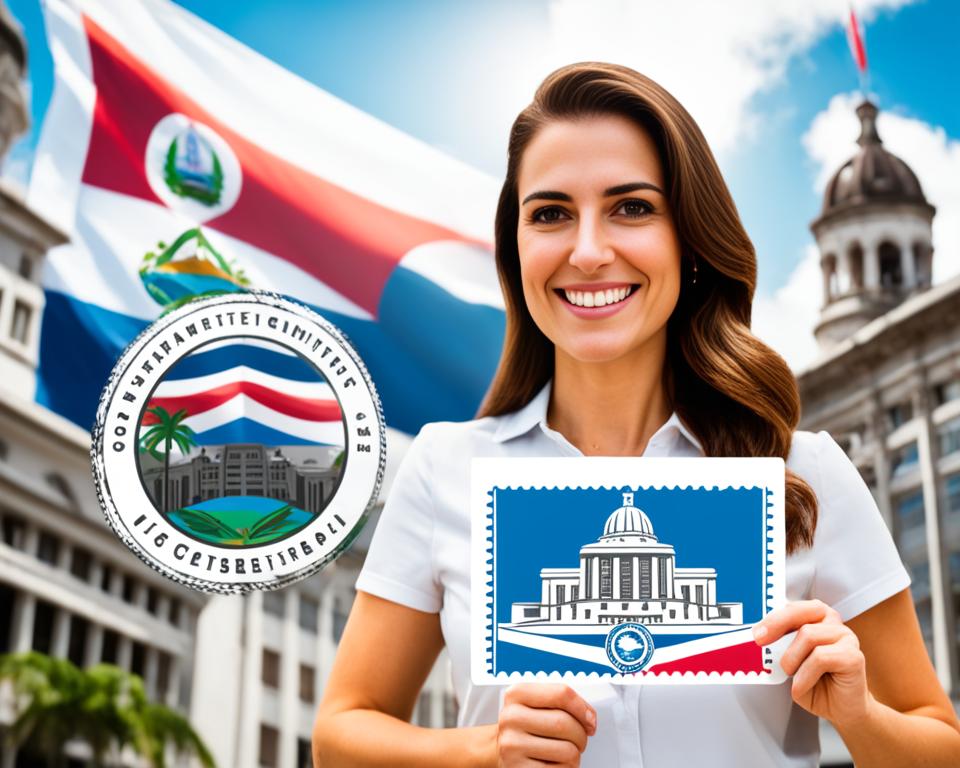As a hub for international workers and service providers, Costa Rica has introduced Law No…

Can an Expat Open a Business in Costa Rica? All You Need With CRIE.cr.
Thinking of starting a business in beautiful Costa Rica? Many global business owners are attracted to the country’s steady economy, secure atmosphere, and support for overseas investments. Yet, understanding the local laws and business setups can be overwhelming. Costa Rica Immigration Experts (CRIE) is here to support you.
With more than 20 years of experience and a track record of thousands of successful cases, CRIE stands as one of Costa Rica’s most experienced immigration firms. We have helped numerous people realize their dreams of residing and working in this lively Central American land. Whether you aim to launch a business, invest in agriculture, or join the tourism sector, our skilled team will assist you throughout.
Key Takeaways:
- Costa Rica boasts a solid economy and minimal crime, ideal for expat entrepreneurs.
- The government encourages outside investments, offering perks like tax cuts and exemptions on import duties.
- Expat business owners can opt for a Corporation or a Limited Liability Company as their business structure.
- Figuring out the legal steps and tax duties for businesses in Costa Rica can be tough, but CRIE is here to ensure you comply.
- Getting the correct visas and residency is key for expats wanting to open a business in Costa Rica.
Ready to dive into the world of entrepreneurship in Costa Rica? Reach out to CRIE for a smooth start to your business goals in these welcoming industries.
Why Start a Business in Costa Rica?
If you’re looking to start a business as an expat, Costa Rica is a top choice. This Central American nation is beautiful and great for relaxation. It is also a hot spot for new business ventures. The economy is stable, and crime is low. This makes it a safe and promising place for entrepreneurs.
Income Generation Opportunities
Costa Rica welcomes many tourists each year. This means there’s a big market for businesses, especially in hospitality and tourism. The growing community of expats also needs services like legal help, healthcare, and real estate. This creates opportunities for new businesses to find their niche.
Stable Economy and Low Crime Levels
Costa Rica’s economy is steady, and its crime rates are low. This is good news for anyone looking to invest or start a business there. In 2010, the country’s unemployment rate was only 6.6%. This was lower than the U.S. rate of 9.7% at the time. Such a strong economy and safe atmosphere offer a good start for any business.
Government Support for Foreign Investment
The Costa Rican government is very supportive of foreign businesses. It offers perks like tax breaks and import duty exemptions. This makes it easier for international businesspeople to launch their ventures. Such support from the government adds to the allure of starting a business in Costa Rica.
Established Expat Community
There’s a growing community of expats in Costa Rica. They need a variety of services and products. As an expat entrepreneur, you can meet these market needs. Plus, the established expat network can offer guidance and support. This will help you get your business up and running smoothly.
In summary, Costa Rica has a lot to offer entrepreneurs, especially expats. It has plenty of chances for making money, plus a safe and supportive business environment. The government encourages foreign investment, and there’s a community of expats ready to support new businesses. Knowing the market and what it offers can help make your business a success in this lively country.

Visa Requirements and Work Permits
Living abroad brings its challenges. Getting the right visa and work permit in Costa Rica is no easy task. Usually, a special visa is needed to work there, unless you’re a citizen or have residency. To protect local job markets, Costa Rica has strict rules for business visas. Yet, you can still start your own business with a tourist visa. Just make sure you hire local Costa Ricans to do hands-on work.
The Costa Rican Work Permit offers different categories. These include jobs like Artists, Athletes, Entertainers, Domestic Workers, and Self-employed in certain sectors. For a work permit, you’ll need a signed letter from the employer, a verified job offer, and the employer’s financial proof. Employers have to show documents such as a business license and company registration too.
To apply for a work permit, you need to spend at least one day in Costa Rica each year. After starting the residency process, you get a special certificate. This certificate lets you stay during the application review. You have 180 days to turn in all needed paperwork at the Immigration Department (DGME). You can extend this deadline once, but it will cost you.
Remember, the fees for services by CRIE don’t include government charges or other expenses. When getting a work permit, think about the costs of translating documents into Spanish, going to immigration appointments, and making an ID card. The prices for these services can change unexpectedly. So, always keep up to date and plan your budget carefully.

Business Structures and Registration Process
If you’re an expat, owning a business in Costa Rica is possible, even without being a resident. You’ll need to pick between two main structures for your company. These are the Sociedad Anonima (S.A.) and the Sociedad de Responsabilidad Limitada (S.R.L.). Each has its own strengths and legal aspects to consider.
Sociedad Anonima (S.A.) – Corporation Structure
The S.A. Corporation Structure is often chosen by non-Costa Rican companies. It allows for limited liability and flexibility in how shares are held. Companies can also publicly trade their shares. This structure is well-respected and helps businesses grow and expand in Costa Rica.
Sociedad de Responsabilidad Limitada (S.R.L.) – Limited Liability Company
Another popular choice is the S.R.L., which is good for foreign investors. It protects the owners’ personal assets from business debts. The S.R.L. is simpler to manage than an S.A. company.
Choosing a Legal Company Name
Selecting a legal name that meets Costa Rica’s rules is crucial. You must check if your desired name is available with the local Mercantile Registry. This ensures it’s not already in use by another business.
Obtaining Licenses and Permits
After picking a structure, you’ll need various permits and licenses to run your business. This includes tax registration and any industry-specific permissions. CRIE’s team can help you get through this part with ease.
Shareholder Declaration and Digital Signature
Registering your shareholders and getting a digital signature is important. This is a step Costa Rica takes as part of the OECD. It improves business transparency and accountability. Our team is ready to help with these requirements for your business registration.

Can an Expat Open a Business in Costa Rica?
Yes, expats can start businesses in Costa Rica legally. They need the right permits to begin. You can set up a business there even if you don’t live in Costa Rica full-time.
The process to start a company in Costa Rica is open to foreign entrepreneurs. This is thanks to the country’s business immigration policies. These policies allow expats to own foreign-owned businesses in Costa Rica.
Costa Rica welcomes expat business opportunities. But, there are rules and regulations to keep in mind. With the right knowledge, expats can open a successful business. The country’s stable economy, safe environment, and support for foreign investment make it appealing for expat entrepreneurs.

Taxes and Financial Obligations
Being a business owner in Costa Rica means handling different taxes and financial duties. It’s essential to know about corporate taxes, the value-added tax (VAT), and rules for small businesses. This knowledge helps you follow the law and control your money well.
Corporate Taxes and Annual Corporation Fee
Corporate taxes and the yearly corporation fee are important for businesses in Costa Rica. The corporate tax rate is 30%. The yearly corporation fee can be from $300 to $500 USD, based on your company’s size and type. Staying on top of these taxes and fees keeps your business legal.
Value Added Tax (VAT)
Costa Rica has a 13% value-added tax (VAT), called the Impuesto sobre el Valor Agregado (IVA). Business owners must collect and pay this tax on their products and services. Knowing the VAT rules and issuing correct invoices is key for following the tax laws.
Special Provisions for Small Businesses
If you run a small or medium business in Costa Rica, you might get special tax breaks. These small business tax benefits could reduce your costs and help your company grow. Learning about these options can aid in your tax strategy and financing plans.
Electronic Invoicing Requirements
Costa Rica uses electronic invoices for all sales, known as Factura Electrónica (FE). Business owners must issue these digital invoices. Knowing the costa rica electronic invoicing rules and ensuring your systems meet them is crucial for your daily business.
Employment Obligations
Employing people in Costa Rica requires you to meet different obligations. This includes providing social security, paying taxes for your employees, and following work laws. Meeting these duties is vital for your business to run smoothly and avoid tax issues.

Government Assistance for Foreign-owned Businesses
The Costa Rican government is very welcoming to foreign businesses, especially those from the United States. It offers a nice setting for business and lots of benefits like not paying some taxes. This is good for businesses in tourism, farming, and trading.
Costa Rica really wants foreign companies to invest there. They make it easy by cutting some red tape and taxes, which attracts a lot of people. It’s a great place for anyone wanting to start a company in Central America.
Costa Rica is known for being safe and having a strong economy. It’s a top choice for businesses because the government helps a lot. This support has made the country a favorite spot for both small companies and big worldwide brands.
| Incentive | Description |
|---|---|
| Tax Exemptions | The Costa Rican government offers tax exemptions for businesses operating in specific industries such as tourism, forestry, agriculture, and certain import/export sectors. |
| Grants | The government provides grants to support the establishment and growth of foreign-owned businesses in Costa Rica. |
| Streamlined Registration | The registration process for foreign-owned businesses in Costa Rica is typically straightforward, especially with the assistance of local legal professionals. |
| Investment Incentives | Foreign investors can secure residency status by making significant investments in Costa Rican property or stocks. |
Foreigners can do very well in Costa Rica by utilizing these helpful government policies. They make it easy for expats and business people to succeed in a welcoming business setting.

Investment Opportunities in Costa Rica
Costa Rica has many chances for expats to invest in its lively economy. From farming to manufacturing and services, the country is full of chances. This is great for those wanting to find investment opportunities in Costa Rica.
Agriculture
The agriculture sector in Costa Rica makes up more than 5% of its GDP. The nation’s fertile lands and perfect weather are perfect for growing coffee, pineapples, and bananas. Expat investors can look into big commercial farming or smaller, special productions.
Manufacturing
The manufacturing sector in Costa Rica is great for expat investors. Tech leaders like Intel and IBM are here, drawn by the skilled workforce and stable economy. This makes it a top choice for making high-tech gear, medical devices, and more.
Service Sectors
Costa Rica’s finance and healthcare services catch the eye of foreign investors. The nation’s skilled workers and steady economy create the perfect place for expats. They can invest in these growing areas and benefit from the high demand for services.
Tourism Industry
Costa Rica, a favorite for over 2 million visitors yearly, is a gem for investing in tourism. Expat investors can look into hotels, eco-tourism, or adventure travel. This is to meet the interest of international visitors who want to see the country’s beauty and culture.
Costa Rica is full of chances for expats to start a business or grow their investments. By using the business-friendly setup and government support, they can make the most of the growing market. This way, expats can find lots of success in the nation’s economy.
FAQ
Can expats legally start a business in Costa Rica?
Yes, expats can start businesses in Costa Rica with the right permits. They must follow certain rules. Even without living there all the time, you can own a business. The process for expats is quite straightforward.
What are the main business structures available for expats in Costa Rica?
Expat business owners can pick between Sociedad Anonima (S.A.) and Sociedad de Responsabilidad Limitada (S.R.L.). Each has its own advantages and legal matters to think about.
What are the visa and work permit requirements for expats to start a business in Costa Rica?
Working in Costa Rica as a foreigner can be complex. You usually need a special visa to work there. But, if you’re not a citizen or permanent resident, business visa rules are strict. You can manage your business with a tourist visa. Yet, you must hire locals for hands-on work.
What are the tax and financial obligations for expat-owned businesses in Costa Rica?
Business in Costa Rica comes with tax and financial responsibilities. Understand corporate taxes, value-added tax (VAT), and small business rules. This knowledge is key to legal compliance and financial success.
Does the Costa Rican government provide any incentives or support for foreign-owned businesses?
The Government of Costa Rica is supportive of foreign investment. The U.S. leads in investment here. Foreign businesses get benefits like no import duty and tax incentives.
What are some of the top investment opportunities for expats in Costa Rica?
Expats can invest in various sectors in Costa Rica. From agriculture to services, many industries are available. This broad choice lets investors find what suits them best.
Source Links
- https://crie.cr/can-an-expat-open-a-business-in-costa-rica/
- https://crie.cr/8-business-opportunities-for-expats-in-costa-rica/
- https://crie.cr/starting-a-business-in-costa-rica-successfully/
- https://www.twoweeksincostarica.com/starting-business-costa-rica/
- https://immigrationexpertscr.com/starting-a-business-in-costa-rica-opportunities-and-challenges/
- https://www.costarica.com/business/faq.html
- https://crie.cr/work-permit-in-costa-rica/
- https://www.pacificprime.lat/blog/the-ultimate-guide-to-costa-rica-work-visas-permits-2024/
- https://crie.cr/digital-nomad-visa-in-costa-rica/
- https://www.usemultiplier.com/costa-rica/company-registration
- https://crie.cr/permanent-residency-in-costa-rica/
- https://crie.cr/citizenship-in-costa-rica/
- https://www.coldwellbankersamara.com/article/can-a-foreigner-truly-own-a-business-in-costa-rica
- https://gap.cr/registering-a-business-in-costa-rica/
- https://crie.cr/about-crie/
- https://crie.cr/frequently-asked-questions/
- https://crie.cr/residency-requirements-in-coste-rica/


